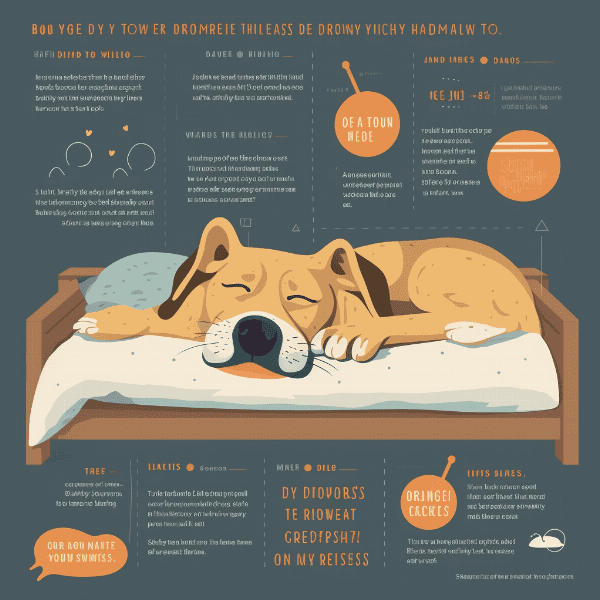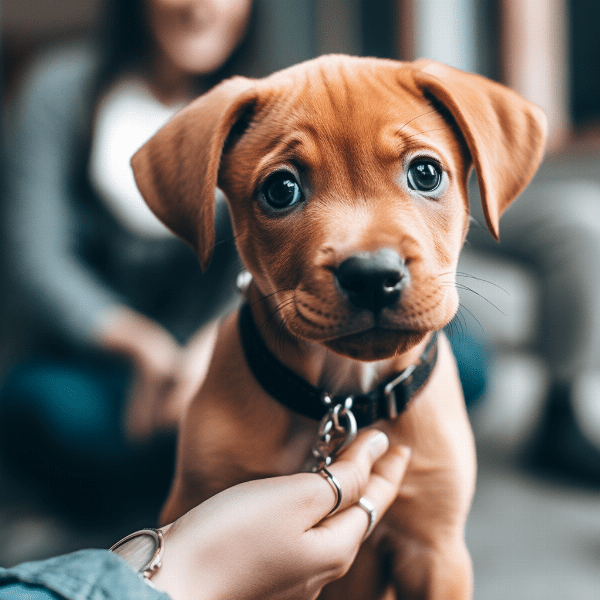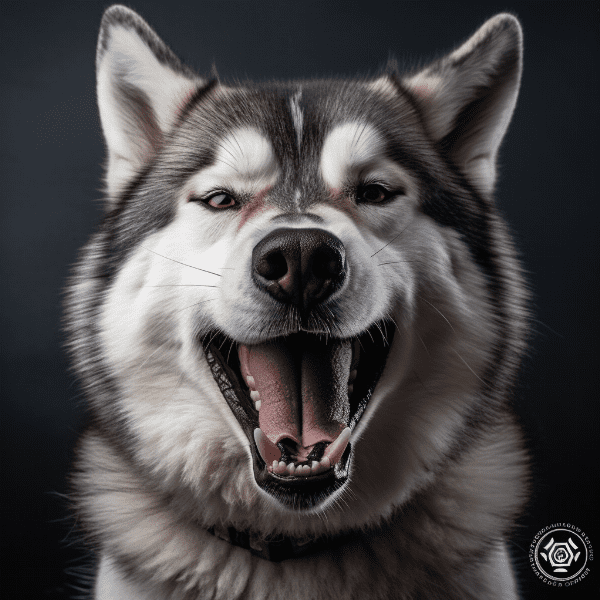Table of Contents
- Why do dogs growl in their sleep?
- The different types of dog growling
- Is growling in sleep normal for dogs?
- How to distinguish between sleep growling and aggressive behavior
- Can sleep growling be a sign of a health problem?
- Should you wake a dog up from a growling sleep?
- Tips for managing a dog’s sleep growling
- When to seek professional help for sleep growling
- Understanding other sleep behaviors in dogs
- Conclusion: The importance of monitoring your dog’s sleep patterns.
Why do dogs growl in their sleep?
Dogs are known to make a variety of noises while they sleep, including whining, barking, and growling. Growling is a common sleep behavior in dogs, and it can be confusing for pet owners who may wonder if their dog is having a nightmare or experiencing some other issue. In this section, we will explore some of the reasons why dogs growl in their sleep.
The role of dreaming
Like humans, dogs can dream while they sleep. During the dreaming phase, dogs may twitch, move their legs, and even make noises. Some dogs may growl while they dream, especially if they are dreaming about a situation where they would normally growl while awake. For example, a dog that growls at strangers may growl in their sleep if they are dreaming about a stranger approaching them.
Unconscious responses
Sometimes, dogs may growl in their sleep due to unconscious responses to stimuli in their environment. For instance, if a dog hears a loud noise or senses a change in the room’s temperature, they may growl in their sleep without even realizing it.
Expressing emotions
Dogs may also growl in their sleep as a way of expressing emotions. This is particularly true if the dog is experiencing feelings of stress, anxiety, or fear. Growling in sleep can be a way for the dog to release these emotions, much like how humans may talk or scream in their sleep.
A natural behavior
Finally, it’s essential to understand that growling in sleep is a natural behavior for dogs. Just like humans snore or talk in their sleep, growling is a natural part of a dog’s sleep cycle. It doesn’t necessarily indicate that something is wrong with the dog or that they are experiencing a nightmare.
Understanding the reasons why dogs growl in their sleep can help pet owners feel more confident and informed about their pet’s behavior. While growling can be a sign of other issues in some cases, it’s generally a harmless behavior that should not cause concern.
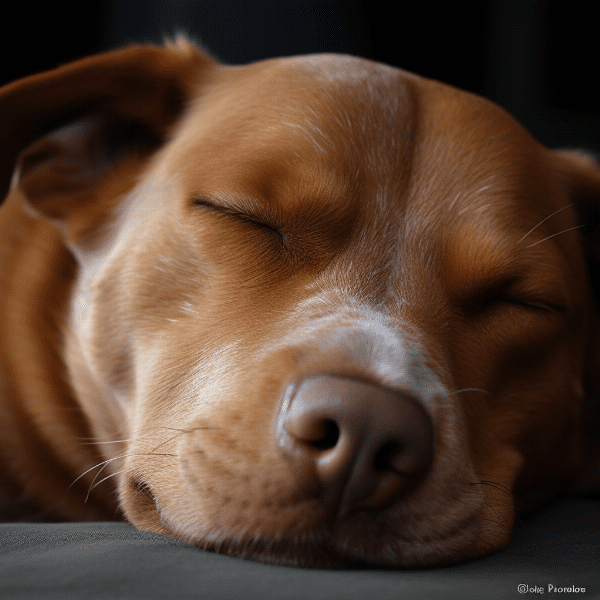
The different types of dog growling
Growling is a common behavior in dogs, and it can have different meanings depending on the context. In this section, we will explore the different types of growling that dogs may exhibit while sleeping.
Play growling
One of the most common types of growling in dogs is play growling. This type of growling is typically heard when dogs are engaged in play with their owners or other dogs. Play growling is generally a positive behavior and is not a sign of aggression or anger.
Aggressive growling
Aggressive growling is a more serious type of growling in dogs. This type of growling is typically accompanied by other aggressive behaviors, such as bared teeth, a stiff body posture, and raised hackles. Aggressive growling is a sign that the dog is feeling threatened or is trying to protect their territory.
Fear-based growling
Fear-based growling occurs when a dog is feeling scared or threatened. This type of growling may be accompanied by other fear-related behaviors, such as cowering or hiding. Fear-based growling is a sign that the dog is feeling overwhelmed and needs help to feel safe and secure.
Frustration growling
Frustration growling is a type of growling that occurs when a dog is feeling frustrated or irritated. This type of growling is often heard when dogs are prevented from doing something they want to do, such as when they are on a leash or behind a fence.
Attention-seeking growling
Finally, some dogs may growl in an attempt to get attention from their owners. Attention-seeking growling is generally a less serious behavior and can be addressed through positive reinforcement training.
Understanding the different types of growling in dogs can help pet owners identify the reasons behind their dog’s growling while sleeping. It’s important to note that growling is not always a sign of aggression or anger and can have different meanings depending on the context. By paying attention to other behaviors and body language, pet owners can better understand their dog’s needs and provide the necessary support to keep them happy and healthy.
Is growling in sleep normal for dogs?
Sleep growling is a common behavior in dogs and is generally considered normal. In this section, we will explore some of the factors that can influence sleep growling in dogs and whether it should be a cause for concern.
Breed tendencies
Some dog breeds are more prone to growling in their sleep than others. Breeds that were historically used for guarding or protection, such as the Rottweiler or German Shepherd, may be more likely to exhibit sleep growling behavior. However, this doesn’t necessarily mean that all dogs of these breeds will growl in their sleep.
Age and health
As dogs age, they may become more prone to sleep disorders or health issues that can cause them to growl in their sleep. Conditions such as cognitive dysfunction syndrome or arthritis can cause discomfort or anxiety that can lead to sleep growling. In these cases, it’s important to seek veterinary advice to ensure that your dog receives the appropriate treatment.
Sleep environment
The sleep environment can also impact a dog’s sleep behavior. Loud noises or bright lights can disrupt a dog’s sleep and cause them to growl. Creating a calm and comfortable sleep environment, such as providing a cozy bed in a quiet room, can help to reduce sleep growling.
.
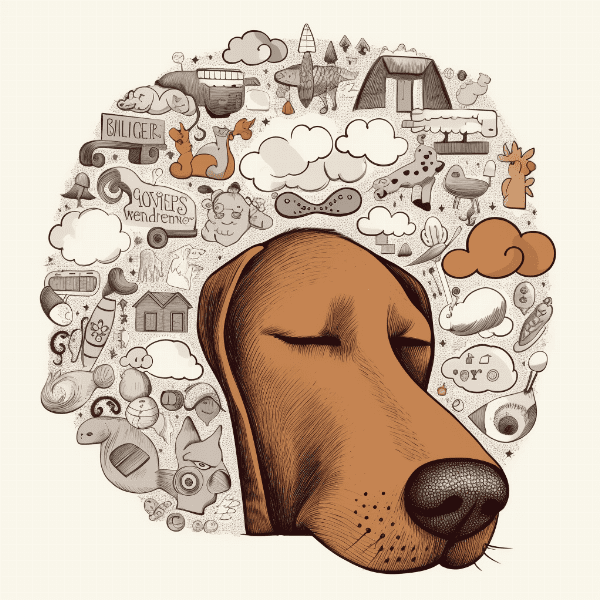
How to distinguish between sleep growling and aggressive behavior
Sleep growling can be mistaken for aggressive behavior in dogs, which can be a cause for concern for pet owners. In this section, we will explore some tips to help distinguish between sleep growling and aggressive behavior.
Sleep position
Another way to distinguish between sleep growling and aggressive behavior is by paying attention to the dog’s sleep position. Dogs that are growling in their sleep will typically be lying down and may even be snoring or twitching. In contrast, dogs that are displaying aggressive behavior will typically be standing up or pacing, and may be fixated on a perceived threat.
Other behaviors
It’s also important to pay attention to other behaviors that the dog is exhibiting. Dogs that are growling in their sleep may also be wagging their tail or appear contented. Dogs that are displaying aggressive behavior will typically have dilated pupils and may appear tense or anxious.
Context
Finally, it’s important to consider the context in which the growling is occurring. If the dog is growling in their sleep, it’s unlikely that they are experiencing aggressive behavior. However, if the dog is growling while awake and in response to a perceived threat, it may be a sign of aggression.
By paying attention to these factors, pet owners can distinguish between sleep growling and aggressive behavior in their dogs. If you are unsure whether your dog’s behavior is normal or a cause for concern, it’s always a good idea to seek the advice of a veterinary behaviorist. With the right support and understanding, pet owners can help their dogs lead happy and healthy lives.
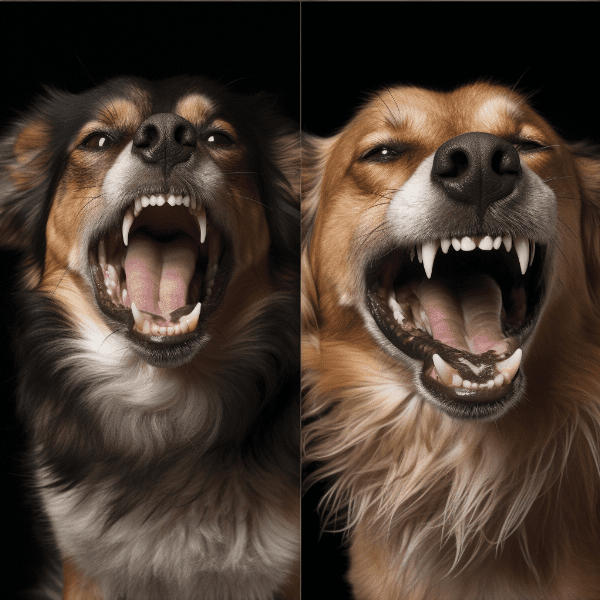
Can sleep growling be a sign of a health problem?
Cognitive dysfunction syndrome
Cognitive dysfunction syndrome (CDS) is a condition that affects senior dogs and can cause a range of symptoms, including disorientation, confusion, and changes in behavior. Dogs with CDS may growl in their sleep due to the neurological changes associated with the condition. If you suspect that your senior dog may have CDS, it’s important to seek veterinary advice to manage the condition effectively.
Anxiety or stress
Dogs that are experiencing anxiety or stress may also growl in their sleep. This can be due to a range of factors, such as separation anxiety or fear of loud noises. If you notice that your dog is growling more frequently and also exhibiting other signs of anxiety or stress, such as panting or pacing, it may be worth seeking the advice of a veterinary behaviorist.
Respiratory issues
Respiratory issues can also cause dogs to growl in their sleep. Conditions such as asthma or allergies can cause wheezing or snoring that can manifest as growling during sleep. If you notice that your dog is growling and also exhibiting respiratory symptoms, it’s essential to seek veterinary advice to manage the underlying condition.
In conclusion, while sleep growling is generally considered normal behavior in dogs, it can sometimes be a sign of an underlying health problem. By paying attention to other symptoms and seeking veterinary advice when necessary, pet owners can help their dogs to lead happy and healthy lives.
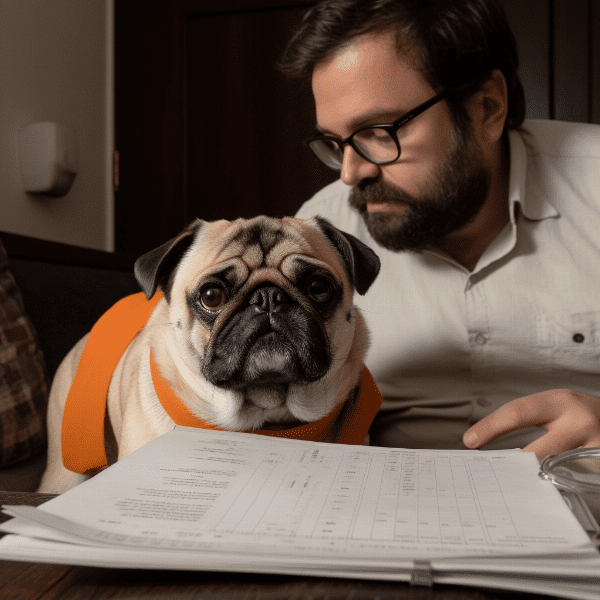
Should you wake a dog up from a growling sleep?
As a pet owner, you may wonder whether it’s appropriate to wake your dog up if they are growling in their sleep. In this section, we will explore whether it’s necessary to wake a dog up from a growling sleep.
Context of the growling
The context of the growling can help determine whether it’s necessary to wake your dog up. If the growling is accompanied by other behaviors such as snoring or twitching, it’s likely that your dog is simply dreaming and experiencing normal sleep behavior. In this case, it’s generally not necessary to wake your dog up.
Aggressive or fearful behavior
However, if the growling is accompanied by other aggressive or fearful behaviors, it may be necessary to wake your dog up. For example, if your dog is growling and appears to be in a state of distress or is exhibiting aggressive body language, such as raised hackles or a stiff body posture, it may be necessary to wake them up to prevent the behavior from escalating.
Approach with caution
If you do need to wake your dog up, it’s important to approach with caution. Start by speaking to your dog in a calm and soothing tone to help them transition out of their sleep state. Avoid sudden movements or loud noises that could startle your dog and cause them to become defensive or aggressive.
Monitoring behavior
Finally, it’s important to monitor your dog’s behavior after waking them up. If they continue to exhibit aggressive or fearful behavior, it may be necessary to seek veterinary advice or the advice of a veterinary behaviorist to address any underlying issues.
In conclusion, whether or not you should wake your dog up from a growling sleep depends on the context of the growling and the accompanying behavior. If the growling is accompanied by normal sleep behavior, it’s generally not necessary to wake your dog up. However, if the growling is accompanied by aggressive or fearful behavior, it may be necessary to approach with caution and seek veterinary advice if necessary.
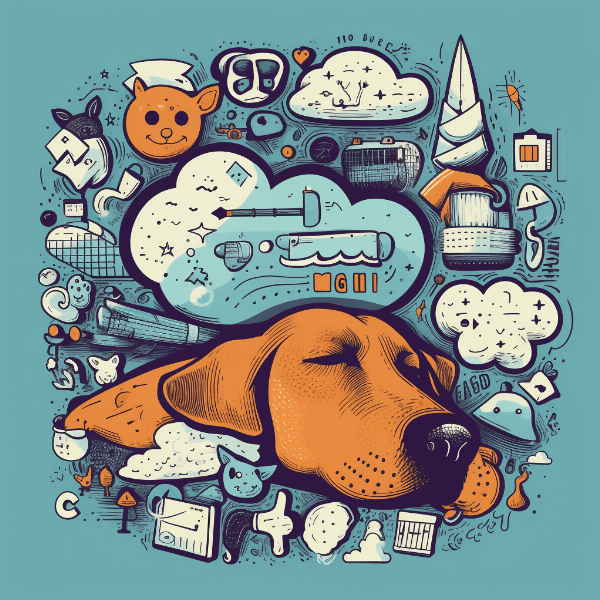
Tips for managing a dog’s sleep growling
While sleep growling is generally considered normal behavior in dogs, it can sometimes be disruptive to pet owners. In this section, we will explore some tips for managing a dog’s sleep growling.
Create a calm sleep environment
Creating a calm and comfortable sleep environment can help to reduce sleep growling in dogs. Providing a cozy bed in a quiet room and minimizing loud noises or bright lights can help to promote restful sleep.
Monitor behavior
It’s important to monitor your dog’s sleep behavior to ensure that sleep growling doesn’t escalate into a more serious issue. If you notice that your dog is growling more frequently or aggressively in their sleep, it may be worth seeking the advice of a veterinary behaviorist.
Exercise and playtime
Regular exercise and playtime can help to reduce stress and anxiety in dogs, which can contribute to sleep growling. Ensuring that your dog receives adequate exercise and mental stimulation can help to promote restful sleep.
Address underlying health issues
If sleep growling is accompanied by other symptoms, such as respiratory issues or pain, it’s essential to seek veterinary advice to address the underlying health issue. Treating the underlying health issue can help to reduce sleep growling and improve your dog’s overall health.
Positive reinforcement training
Using positive reinforcement training can help to address attention-seeking growling in dogs. Providing treats and praise when your dog exhibits calm behavior can help to reinforce positive sleep behavior and reduce growling.
In conclusion, managing a dog’s sleep growling involves creating a calm sleep environment, monitoring behavior, providing regular exercise and playtime, addressing underlying health issues, and using positive reinforcement training. By understanding your dog’s sleep behavior and providing the appropriate support, you can help them to lead happy and healthy lives.
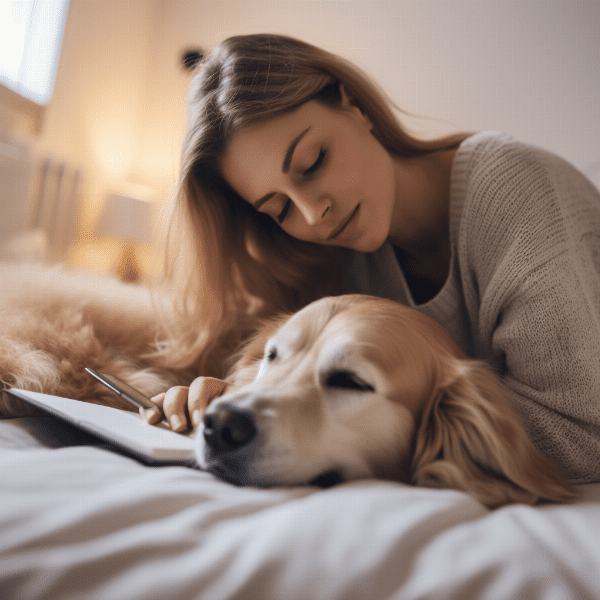
When to seek professional help for sleep growling
While sleep growling is generally considered normal behavior in dogs, there are times when it may be necessary to seek professional help. In this section, we will explore some of the situations where seeking professional help for sleep growling is necessary.
Aggressive behavior
If your dog is exhibiting aggressive behavior while growling in their sleep, such as bared teeth or lunging, it’s essential to seek professional help. Aggressive behavior can be dangerous and can escalate quickly, making it important to seek the advice of a veterinary behaviorist to address the issue.
Fearful behavior
Similarly, if your dog is exhibiting fearful behavior while growling in their sleep, such as cowering or hiding, it’s important to seek professional help. Fearful behavior can indicate underlying anxiety or stress, and a veterinary behaviorist can provide advice on how to manage the issue effectively.
Changes in behavior
If your dog’s sleep growling behavior has recently changed, such as becoming more frequent or aggressive, it’s important to seek professional help. Changes in behavior can indicate underlying health issues or changes in the dog’s environment, and a veterinary behaviorist can help to identify and address the issue.
Other symptoms
If your dog’s sleep growling is accompanied by other symptoms, such as respiratory issues, pain, or changes in appetite, it’s essential to seek veterinary advice. These symptoms can indicate underlying health issues that require treatment.
In conclusion, seeking professional help for sleep growling is necessary if the behavior is accompanied by aggressive or fearful behavior, changes in behavior, or other symptoms. By seeking the advice of a veterinary behaviorist or veterinarian, pet owners can address the underlying issues effectively and help their dogs lead happy and healthy lives.
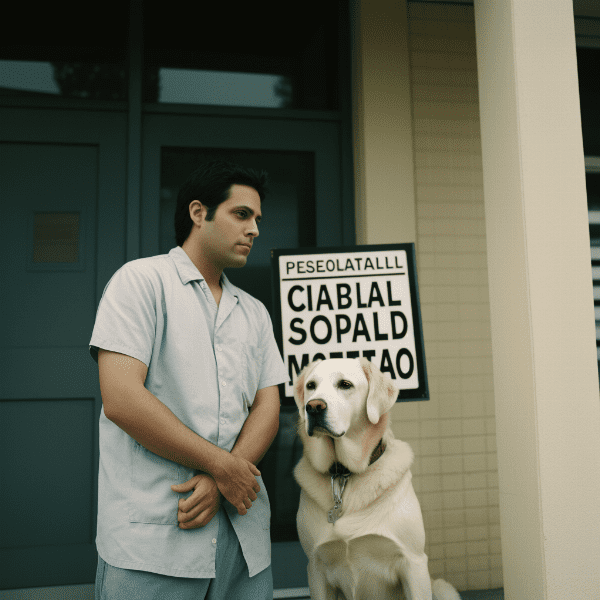
Understanding other sleep behaviors in dogs
Sleep behaviors in dogs can vary widely, from snoring and twitching to growling and vocalizing. In this section, we will explore some of the other sleep behaviors that dogs exhibit.
Snoring
Snoring is a common sleep behavior in dogs, particularly in breeds with short snouts such as bulldogs or pugs. While snoring is generally considered normal, it can sometimes indicate underlying respiratory issues that require veterinary attention.
Twitching
Twitching is another common sleep behavior in dogs and is generally considered normal. Dogs may twitch in their sleep due to muscle memory from activities performed while awake, or due to the brain processing information while in the sleep state.
Vocalizing
Dogs may also vocalize in their sleep, such as whining, howling, or barking. Like sleep growling, this behavior is generally considered normal, although excessive vocalizing can be disruptive to pet owners.
Restlessness
Restlessness is a sleep behavior in dogs that can indicate underlying issues such as anxiety or pain. Restlessness can manifest as pacing, shifting positions frequently, or difficulty settling down to sleep. If you notice that your dog is restless during sleep, it may be worth seeking veterinary advice to rule out any underlying health issues.
Rapid Eye Movement (REM) sleep
Like humans, dogs experience REM sleep, which is characterized by rapid eye movements and brain activity. During REM sleep, dogs may twitch, vocalize, or exhibit other sleep behaviors. REM sleep is essential for memory consolidation and overall brain health.
In conclusion, dogs exhibit a range of sleep behaviors, from snoring and twitching to vocalizing and restlessness. While some sleep behaviors may indicate underlying health issues, most are considered normal and a part of a dog’s sleep cycle. By understanding your dog’s sleep behavior, you can provide them with the appropriate support to ensure restful and healthy sleep.
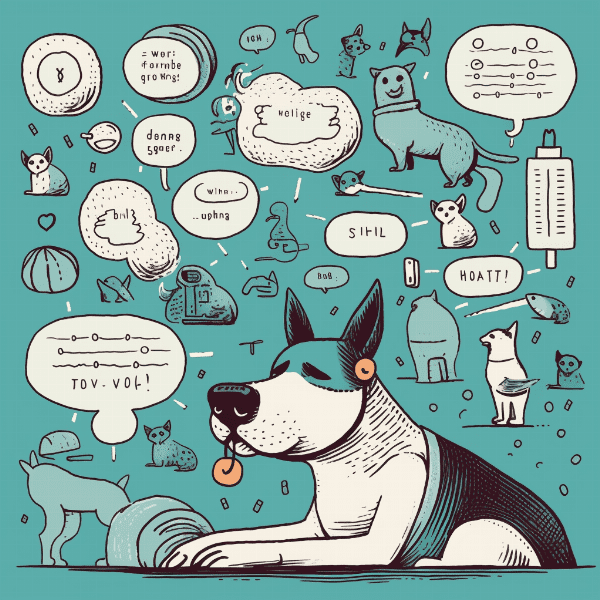
Conclusion: The importance of monitoring your dog’s sleep patterns.
Sleep is essential for a dog’s overall health and well-being, and monitoring your dog’s sleep patterns can help to ensure that they are getting the rest they need. In this article, we explored the different types of sleep growling, why dogs growl in their sleep, how to distinguish between sleep growling and aggressive behavior, and when to seek professional help for sleep growling.
It’s important to create a calm sleep environment, monitor behavior, provide regular exercise and playtime, address underlying health issues, and use positive reinforcement training to manage sleep growling behavior in dogs. It’s also crucial to seek veterinary advice if sleep growling is accompanied by other symptoms, changes in behavior, or aggressive or fearful behavior.
In addition to sleep growling, dogs exhibit a range of sleep behaviors, from snoring and twitching to vocalizing and restlessness. Understanding your dog’s sleep behavior and monitoring their sleep patterns can help to ensure that they are getting the rest they need to lead happy and healthy lives.
In conclusion, by paying attention to your dog’s sleep behavior and seeking veterinary advice when necessary, pet owners can help their dogs to sleep soundly and live their best lives.
